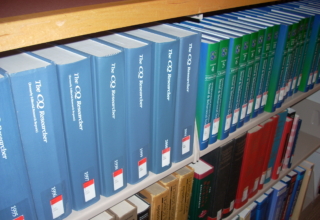
Bachkirova, Tatiana (2016) The self of the coach: Conceptualization, issues, and opportunities for practitioner development. Consulting Psychology Journal: Practice and Research, Vol 68(2), Jun 2016, 143-156. https://doi.org/10.1037/cpb0000055
This article offers a conceptual and developmental proposition based on the centrality of the practitioner’s self in the achievement of coaching outcomes. The central role of the self of the coach is established through a theoretical comparison with a competency (knowledge and skills) frame. Positioning the self in this way acknowledges the complexity and unpredictability of the coaching process and aligns with a complex-adaptive-system perspective on coaching. In turn, it provides a platform for a professional-practice view of the self as the main instrument of coaching and, further, a developmental proposition for the good use of self as an instrument. Three main conditions for the good use of self as an instrument are proposed: understanding the instrument, looking after the instrument, and checking the instrument for quality and sensitivity. Each condition is discussed, and the implications for coaches and educators of coaching in relation to initial training and the continuing professional development of coaches are considered. In keeping with the underpinning theory of self around which it is built, this article gives witness to multiple voices: theory, practice, and development. (PsycInfo Database Record (c) 2022 APA, all rights reserved)
Topical Documents
Documents grouped by Specific Topics.
Design of Supervisory Programs
Gray, D. E. (2007) “Towards a systemic model of coaching supervision: Some lessons from psychotherapeutic and counselling models.” Australian Psychologist 42(4): 300-309.
Although recent research indicates a growing engagement among coaches with supervision, many coaches still pursue their professional practice without the support and guidance of a supervisor. Also, while the organisations that purchase coaching are clear that the coaches they hire should have supervision, they are unclear as to what forms that supervision should take. This article sets out to identify the kind of models of supervision that might be appropriate to coaches by exploring models and lessons from the supervision of counsellors and psychotherapist. Such models are valid because many current practising coaches are professionally trained as counsellors or psychotherapists, and a range of alternative supervisory models have been tried and evaluated over several decades. Applying elements of these models to a coaching context has allowed for the design of what is termed a systemic model of coaching supervision, with contracting, teaching and evaluation at its core. Models of the supervisory relationship are also discussed as important elements of the supervisor-coach alliance.


















Margaret Cary
April 25, 2023 at 11:57 am
Thank you, Bill. This information is a gold mine! -Maggi